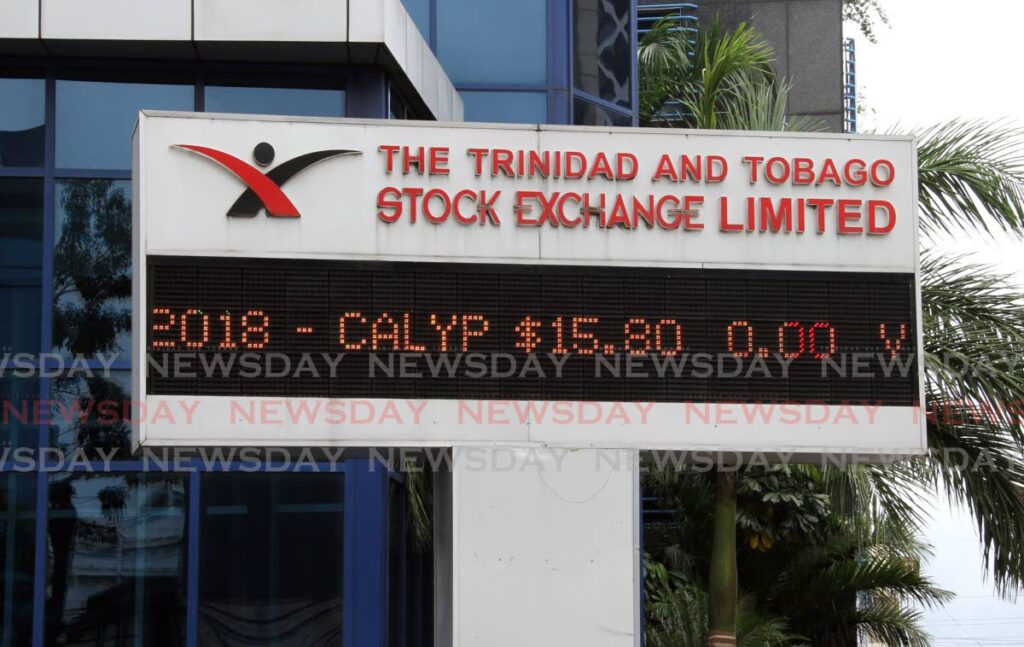Let ordinary people trade stocks, unlock billions in capital

If the Central Bank and stock exchanges allow ordinary people to easily and seamlessly trade local stocks and bond, and break the oligopoly of the brokerages and fund managers, we can potentially unlock hundreds of millions of dollars in capital and boost the economy’s dynamism at a time when we badly need change.
Trading local securities is practically a Sisyphean task. If you want to do so, you must start by opening a brokerage account from one of our ancient brokerage firms or banks, fill in reams of paper and pay fat fees. Transactions are hardly simple.
The only other option is to give your money to a fund manager or mutual fund, who manages your funds for a cut.
If you’re a small-time worker with some savings squirrelled away – forget about it. Local trading is a clubby affair. The concept of insider trading barely exists when most business is done down-the-islands over scotch and sodas.
The end result: most people remain shut out of one of the few remaining ways of earning returns on local currency, at a time when billions in excess liquidity are stuck in the bank. This has knock-on effects – capital is therefore relatively more expensive, volumes on the stock market are tiny, and the market is as liquid as Angostura’s vats of molasses.
Little wonder that the great majority of businesses, particularly family firms, never bother to list on either the senior or junior exchange (the latter of which is designed for mid-size companies). The knock-on effects continue – fewer listings and less liquidity mean fewer opportunities for exists for potential private equity investors. This is depressing investment throughout the economy and driving ordinary people towards the same lovely Ponzi schemes that the government is trying to stamp out.
The good news is that solving this is vanishingly simple. The Central Bank and Securities Exchange Commission simply need to permit trading platforms like RobinHood or Fidelity in the US, which allow people to sign up in seconds and start trading.
Even further, this should be a joint regional effort that enables people to buy stocks in regional exchanges in Jamaica and Barbados.
Now, I can already hear the chorus of voices saying that we are an unsophisticated market with low financial literacy and that the population should be protected from sharks. They worry about encouraging a culture of gambling.
Meanwhile, the entrenched interests of the banks, brokers and mutual funds of course have scant interest in democratising our markets, and anyone can walk into a parlour shop and sit right down at any slot machine.
Of course, it is understandable why regulators might be wary given that the hordes of day traders who have flooded US markets, with tweets and memes being the currency of the day. There’s a lot of crazy things happening, to be sure, but these things are settling down and consumers are learning valuable lessons along the way.
It is time that regulators ditch their overly paternalistic attitudes. How can you worry about financial literacy when ordinary people aren’t being given a chance to learn and practise their knowledge?
I recently met Carlos Guayara, co-founder of trii, a trading platform recently launched in Colombia that is looking to take over Latin America. A fellow winner of one of five Financial Times sustainable development goals awards, he’s seen huge traction in his local market. In Colombia, Guayara says there is huge demand from his users for lessons on finance, especially as many of them are dipping their toes in for the first time. This is an immense opportunity to improve financial inclusion.
Companies like trii or RobinHood are popping up across the developing world. I know of at least one person from Trinidad and Tobago who is planning a Caribbean government bond platform. There’s no reason why a new crop of exciting Caribbean fintech companies couldn’t arise and lead the charge, developing in-country knowledge and capacity along the way.
This is a perfect project for John Outridge, the head of state agency the TT International Finance Centre, coming on the heels of the TT Stock Exchange and its dynamic new CEO Eva Mitchell’s adoption of new technology for brokers enabling repos and even the buying and selling of tokenised digital assets (though it remains to be seen if any will actually be created that link to that platform). There’s still time for our regulators to move off the naughty list and onto the nice list!
Kiran Mathur Mohammed is an economist and co-founder of medl, an IDB lab, Microsoft, WHO and FT-backed health tech company, winner of the TT Chamber Champion of Business technology award. Send feedback and comments to kmmpub@gmail.com


Comments
"Let ordinary people trade stocks, unlock billions in capital"